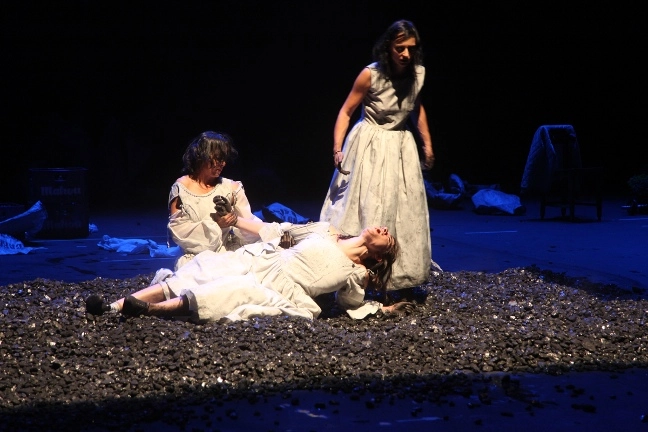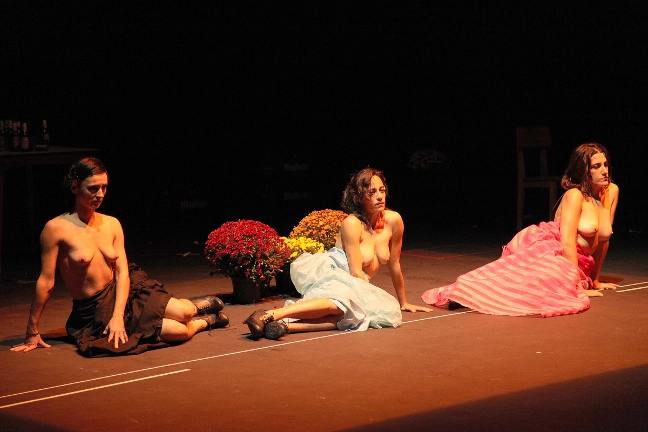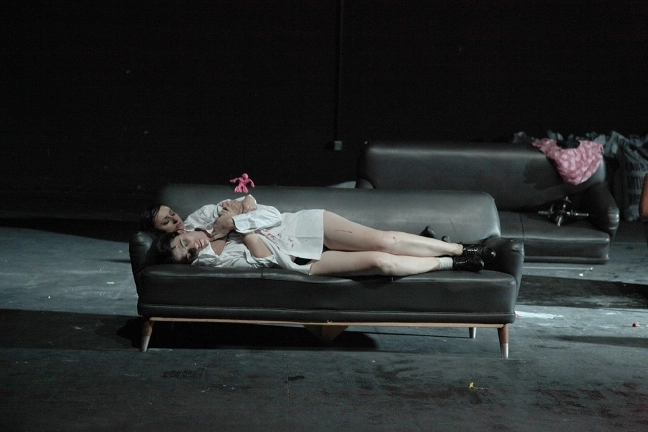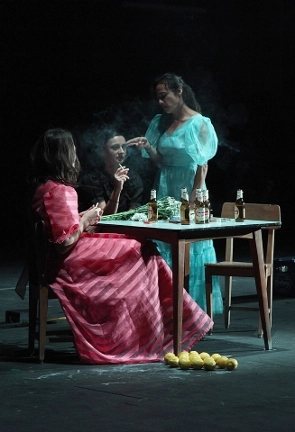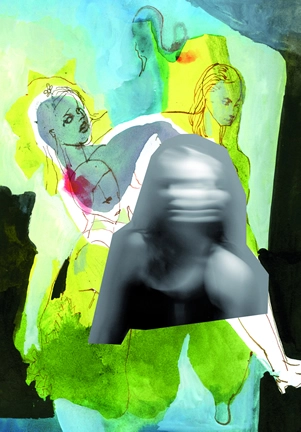La Casa de la fuerza [The House of Strengh]
March 23 2012 to March 28 2012
Yo por dentro estallo
Yo por dentro me miro y tengo 20 anos
Angélica Liddell
A little girl enters and closes the door behind her. She looks as if she is on her way to her bed. She pedals across the stage in a pink toy aeroplane and announces: “There are no mountains, no forests, no deserts that can deliver us from the evil that others have in store for us”. A corrido, a Mexican popular song, celebrating the land of Chihuahua, is heard, followed by mariachi music, accompanied by three dancers, or bacchantes, or mourners. We are then allowed to eavesdrop on a number of heartbreakingly banal stories. First Getsemani tells of the man, who may have been the love of her life, who one night, while they were in bed, struck her out of rage, out of a feeling of impotence “because I had told him that maybe, just maybe, we should stop seeing each other…” Then Lola tells how one day, as she was making love with a stranger, he starts to hurt her horribly. She was in tears and begged him to stop, but he continued and she, still crying, was unable to tell him to leave, “It was as if I was of no importance, as if I was not a person, as if something very fragile was being trampled on…” Then it is the turn of the third woman, the one who calls herself Angélica. She has won many prizes in Spain but was unknown in France a matter of months ago. Angélica speaks not in prose, but cries out in verse: “Inside, I am exploding / Inside, I look at myself and I am 20 years old. / Inside, I am exploding / You will live, you will fuck, you will die / And nothing can change the way a man thinks / […]” So starts the play that was the talk of last year’s Avignon Festival: a terrible voyage which gets close to the intimate suffering of the hundreds of women, as well as the girls who never made it to womanhood, who were raped, tortured and massacred in the Ciudad Juarez area. The age and name of each victim are spoken and commemorated, because these atrocities actually took place, and were as real as the blood which stains a handkerchief during the performance… This voyage, made up of songs, dances and bodies which bear witness, and punctuated with the memories of three sisters, is not, however, a denunciation because, as Angéla Liddell explains: “When I speak of my pain, it is not isolated, but part of a collective pain”, and conversely : here with these artists, exposing oneself to this common suffering, carrying it and sharing it, one certainly does not confine oneself to generalities, but connects with and is touched by a special moment of theatre – everyone who was fortunate enough to see the Casa de la fuerza at the Cloître des Carmes went away from the five hour performance deeply moved by the experience.
